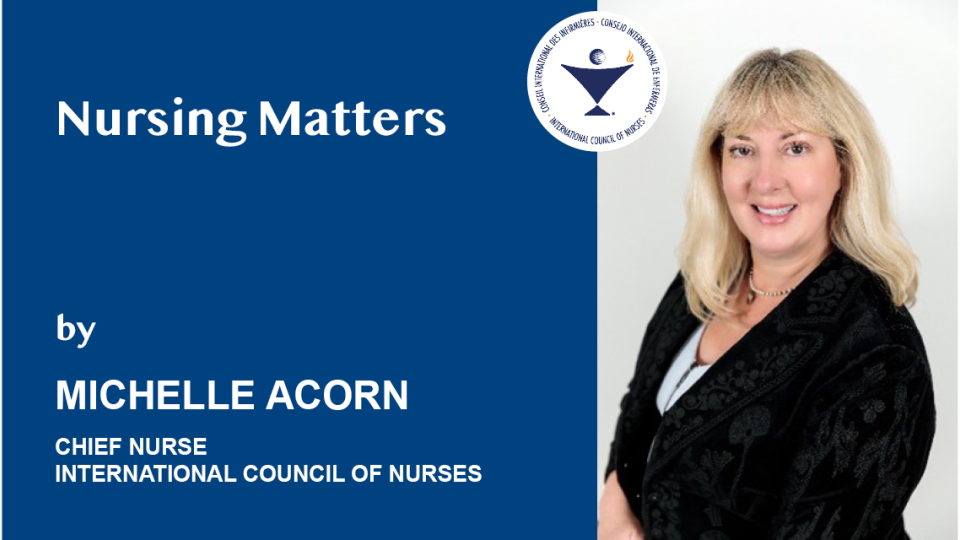Chief Nurse Blog: Nursing Matters February 2023

February’s blog is about a unique way of implementing the ICN International Classification for Nursing Practice (ICNPTM) based on the work of Helder Teixeira de Sousa and Luís Filipe Barreira in Portugal.
The ICNP provides an agreed set of terms to record the observations and interventions of nurses around the world, and provides a framework for sharing nursing data and comparing nursing practice across settings. Using the ICNP can increase the visibility of nursing in healthcare information management systems.
There are numerous ICN accredited ICNP research and development centres that help with its development by reviewing new concept submissions, and use a technical implementation guide to support ICNP implementation. ICN owns and defines the content of ICNP, while SNOMED International manages, produces, releases and distributes ICNP as part of SNOMED CT, the most comprehensive structured clinical vocabulary in use around the world.
It is vital that nurses take the lead in the classification of patient data and clinical activity in the nursing domain in order because it improves the recording of nursing diagnoses and interventions.
For the past two decades, the Ordem dos Enfermeiros (OE) has been pivotal in the advancement of ICNP, and Portuguese nurses have been using it to support the collection of data on nursing observations and interventions.
Nursing ontology, which is the study of the nature of nursing, is founded on the autonomous aspects of nurses' professional practice, the principles that guide the inclusion of information about nursing and the outcomes attained by patients.
Electronic information systems can make nursing more efficient, effective and safer, as they can facilitate the organisation of services, improve communication between health professionals, allow interconnection with other institutions and support healthcare decisions. Globally, however, many nations lack a standardised method for collecting nursing data and have not yet begun to record such data in electronic information systems.
The OE has successfully negotiated to have ICNP included in electronic information systems throughout Portugal’s health systems, which ensures that they support clinical decision-making, rather than act merely as data repositories.
The OE continues to support the evolution of nursing ontology as a process of continual improvement. In 2021 it launched "Version 1.2020" of ICNP with the participation of all the Portuguese Colleges of Specialty in Nursing. This edition is an historic milestone in the nursing profession, and to encourage its use by all nurses, the OE established partnerships and made it available free of charge to Portuguese software developers to promote its use and compatibility throughout the entire Portuguese Health System.
Nursing ontology, as developed in ICNP, can lead to the collection of information that represents the real knowledge of nurses, updated with the best scientific evidence available. Its evolution will translate into a significant improvement in the quality and reliability of indicators, and a reduction in time spent on nurses' records and documentation.
The challenge for nurses is to increase the uptake of a standardised approach to the collection of nursing data, improve information systems to collect the data, and ensure that nurses continue to lead the development of new terms.
Chief Nurse Action Challenge: Showcase your use of ICNP in your organisations and countries.
See you at the ICN Congress in Montreal for further ICNP symposiums and conversations.
Yours in nursing and health,
Best, Michelle
Dr Michelle Acorn, DNP, NP PHC/Adult, FCAN, FAAN, FFNMRCSI, CGNC